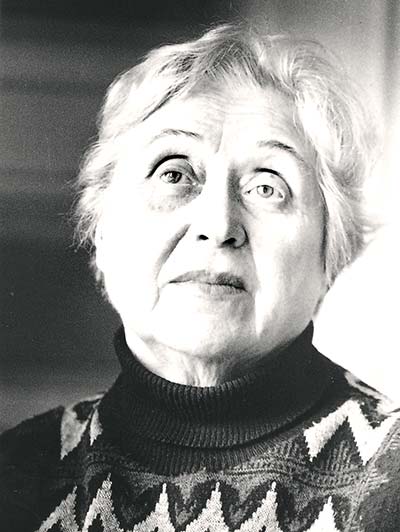Irēna Strode
1921–2013
Ballet soloist, ballet master, educator, choreographer
Born 19 August 1921 in Penza, Russia. Studied at the Fyodorova Ballet Studio (1928–1932) and at the Latvian National Opera Ballet School (1932–1939).
Continued her education at the Choreography School of the Moscow Bolshoi Theatre and later became a soloist at the Latvian National Opera Ballet (1939–1941 and 1944–1957), later as ballet master, stage designer and répétiteur (1948–1991).
After the war, Strode started teaching at the Opera ballet studio (from 1945) and later at the Rīga Secondary School of Choreography (until 1987). In her pupils, she has sought to unleash individual talent, develop independence and a love of work. She was convinced that “it is not important for young dancers to take on complex and major roles, but it is important to endure for 20 years, refining and honing their mastery, enriching their personality ... The young ballet artists who come to the Theatre after finishing school are like blank pages. The depth and beauty of the content they will eventually capture depends to a great extent on each individual’s determined work.” (Legendary ballet artist and dancer Irena Strode has passed away. Opera.lv, 20 September 2013)
In 1958, the artist was invited to work as ballet master with the Sakta (Brooch) Latvian State Philharmonic singing and dance ensemble (1958–1963), which flourishes to a new level of quality under her guidance. Several Latvian stage dances produced by Strode gain popularity among other ensembles and are included in the repertoire of other dance groups. Her choreography Stūru stūriem tēvu zeme (All Corners of the Fatherland) has become an integral part of the classic repertoire of Dance Celebrations. At the end of her life, Strode worked at the World of Ballet School (1997–2003).
A Chief choreographer at the 2nd Dance Celebration.
Latvian SSR Order of Honour for Performing Artists (1959), awarded the Cross of Recognition (2008), and a long-time member of the Latvian Theatre Workers’ Union (1951).
